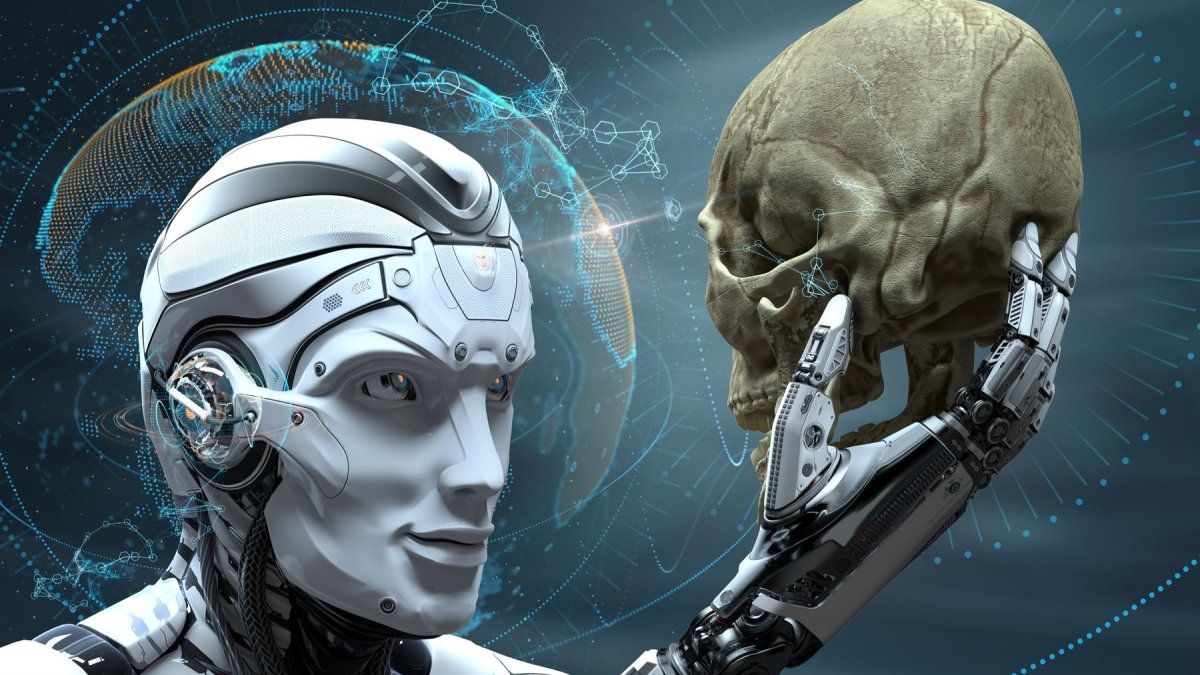Like every revolution, AI caused a stir in global society, generating great expectations and enthusiasm, despite some detractors. Argentina as a country must respond to the ever-increasing demand for information and knowledge, ensuring that easy access to AI is well-oriented, that young people, professionals, politicians and teachers use it seriously, with commitment and awareness of the risks of suffering or causing misinformation. A university student can use chatbot language models to search for information, or to directly put together a practical work, an essay or a thesis. Promoting good, conscious use will depend on us. We have to take charge and educate (literate) our society digitally.
Can AI then replace traditional information search engines (libraries, notes, classes or even Google, the main source of knowledge of our time)? Leaders of the new wave of technology, such as Bill Gates, the creator of Microsoft, have explained that ChatGPT will change the world, although it will not mean the elimination of human employment, but rather its transformation. Thirty years ago, in the first of his books, he also announced that robots would never replace teachers.
Argentina must now consider how to deal with this phenomenon. Although today many of the debates revolve around investment in education, mainly the budget for public universities, whether teachers should strike in defense of their meager salaries, or whether Buenos Aires children at primary level should repeat a year; we never find debates about the literacy of teachers, vital links for school and university literacy in the new educational models. Without a doubt, The longer we delay in deepening digital literacy, the more backward and distant we will be from the rest of the world.
Somewhere between the detractors and the unconditional supporters are the majority of professionals, including educators, who are trying to adapt quickly to these changes, although we are more faced with a transformative invention than a disruption.
Let’s start with several initial assumptions:
Large Language Models (LLMs) and similar AI devices have substantially transformed the way we access information, data and knowledge. This is perhaps as decisive a change as the printing press or the internet were in the past.
* The use of these tools will require that teachers and students handle these instruments in a way that enriches the learning process, allows access to reliable content and exercises certain skills that make graduates more employable.
* The risk of ChatGPT and similar products is not that students will be able to cheat more easily in exams. Today, the aim of educators should not be solely or primarily to transmit knowledge, but rather to develop personality, to form good employable and entrepreneurial citizens, with an emphasis on the formation of social values.
* On the other hand, an educator knows that a teacher is not needed to set grades based on a knowledge test or a multiple choice test. In fact, one of the most valuable added value functions of the teacher is to know his or her students, what their strengths and weaknesses are, and also to act as a coach to accompany their personal development. Therefore, new educational programs should put a lot of emphasis on these issues and tasks that will be vital to enhance the role of the educator.
* By quickly and efficiently processing data and content, LLMs become resources that facilitate multiple educational and professional tasks. The emergence of scientific calculators for learning subjects such as mathematics and statistics became an indispensable element of support for both the student and the educator. The same occurred with internet search engines. We believe that something similar could happen with AI. This will only happen if we use it correctly and properly integrate it into new learning models.
* Similarly, and at least for the moment, these devices do not completely replace the provision of a professional service or the learning process as such. For example, to obtain a report on a strategic question, such as “what are the future trends in the fashion distribution sector”, it is necessary to enter the questions appropriately, process the answers, and even enter into an interactive process in which new questions are formulated and further answers are refined. We are talking about the technique of structuring the prompts or engines of chatbot models or prototypes. This new language must be studied and taught in the new educational models.
* The developers of these applications themselves acknowledge that ChatGPT’s contributions, whether data, information or opinion, may be false or biased. Its search system for resolving requests is based on the popularity of possible answers, not on their veracity, appropriateness or convenience. That is why new educational models should highlight this risk, and teach the work of checking output, prompt reformulation and enrichment of responses generated by chatbot prototypes.
Given these assumptions, How can a Business Strategy teacher use this ingenuity to improve the learning process?
Below I make a series of suggestions based on my experience with professionals with management responsibilities, in large or medium-sized companies, with an average age of around 30 years and diverse cultural backgrounds. I understand that these tips are not necessarily applicable to all types of students, especially the younger ones.
The first task that students are usually asked to complete, along with reading the case, is to search for information, data, analysis and opinions about a case study, for example about a company, its management, performance and strategy. With the emergence of Internet search engines such as Google years ago, this process had become distorted and automated to some extent. Compared to traditional field analysis or library exploration years ago, many students tend to select the most immediate entries in search engines, regardless of their veracity, depth or direct relationship to the subject analyzed.
Choosing ChatGPT therefore does not substantially change the more general search process, it just customizes it slightly based on the questions asked.
In this research phase, it is advisable to ask students to look for unusual information or data in reliable sources to avoid falsehoods and biased opinions. One of the greatest lessons for students is to know and select the sources that are best used to carry out an accurate analysis, a lesson that will serve them for the rest of their professional career.
* With the new revolution, ChatGPT has become the new “teaching note” used by teachers for case studies. If, for example, the questions “what are the threats and opportunities in the retail sector” are asked in this application, the answer is likely to be much more complete, concise and up-to-date than that provided by any other report from a consulting firm.
* The challenge for the teacher is to seek in the students the development of critical capacity and creativity, even while continuing to use the application to find answers to new questions.
In any case, the new AI tools highlight the importance of developing students’ argumentation skills. It would be an irreversible loss if they copied what they took from another source, without even justifying the reasons.
Undoubtedly, educational and learning models will have to adapt and to do so it will be essential to address digital literacy in all its segments in light of current and future technological advances. This will be the great challenge ahead for educational models.
Certified Public Accountant, specialist in Business Strategy and Negotiation, Tax Planning and Business Restructuring and Business Development.
Source: Ambito
David William is a talented author who has made a name for himself in the world of writing. He is a professional author who writes on a wide range of topics, from general interest to opinion news. David is currently working as a writer at 24 hours worlds where he brings his unique perspective and in-depth research to his articles, making them both informative and engaging.




